Table of Contents[Hide][Show]
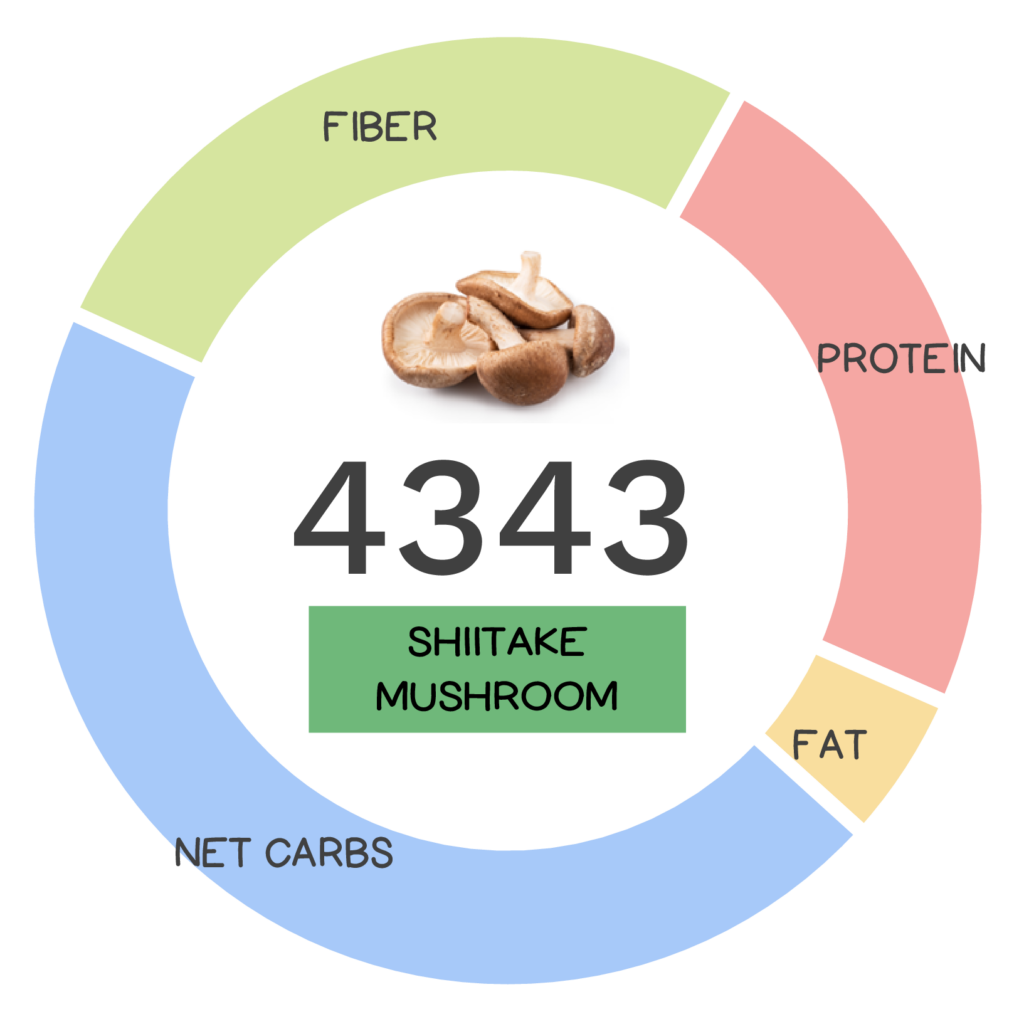
Shiitake mushrooms are one of the most popular edible mushrooms in the world. With their tan to dark-brown umbrella shaped, fleshy caps, and curved inedible stems, available fresh or in dried form, they are a favorite in the kitchen because of their rich, woodsy, umami flavor and meaty texture.
Mushrooms are one of the most unusual and beneficial foods on the planet – worldwide there are approximately 14,000 species!
As a group, mushrooms are one of the most unusual and beneficial foods on the planet, and include any spore-bearing, fruiting body of a fungus – worldwide there are approximately 14,000 species! Fungi are a unique class of organism (technically their own kingdom!) that play an important role in all ecosystems, especially as contributors to the decay and recycling of plant and animal matter. Mushrooms aren’t technically a vegetable, or plant for that matter, since they don’t require sunlight to produce energy, but they have been consumed by humans for thousands of years, dating back to earliest recorded history. Ancient Egyptians thought so highly of mushrooms that they were reserved for royalty, while commoners were prohibited from eating (or even touching!) them. Currently, over 200 edible mushroom species are cultivated, though only a small fraction of them are widely available; however, wild mushrooms can be foraged from nature and are even higher in nutrient density! Along with being remarkably versatile in the kitchen, mushrooms have a long history of use in cultures across the globe for their medicinal properties.
Mushrooms have been consumed by humans for thousands of years, dating back to earliest recorded history.
Medicinal mushrooms have been used in traditional medicine for centuries. Although current estimates are that there are approximately 700 species of mushrooms with medicinal properties, for now only several species have been well-studied in the scientific literature – and only about 25 varieties are cultivated with both culinary characteristics and medicinal properties. One variety of mushroom checking all these boxes is shiitake mushrooms (Lentinula edodes). In Japanese the word ‘shiitake’ comes from ‘shii’ which is the type of hardwood tree (Castanopsis cuspidate) that provided the dead logs on which they commonly grew and ‘take’ which means mushroom. The shiitake mushroom is East Asian in origin, where it grows naturally on decaying wood of deciduous trees (which is why they are also known as ‘hardwood mushrooms’, ‘oak mushrooms’, ‘black forest mushrooms’, and other similar variations). This mushroom has a long history and has been cultivated in China since at least the early 1200’s during the Song dynasty. Today, shiitake are widely cultivated all around the world and account for roughly 25% of yearly mushroom production, ranking them in the top 3 cultivated varieties, along with white button and oyster mushrooms.
Shiitake mushrooms account for roughly 25% of yearly mushroom production, ranking them in the top 3 cultivated varieties, along with white button and oyster mushrooms.
Up Your Nutrient Game Without Restricting Foods
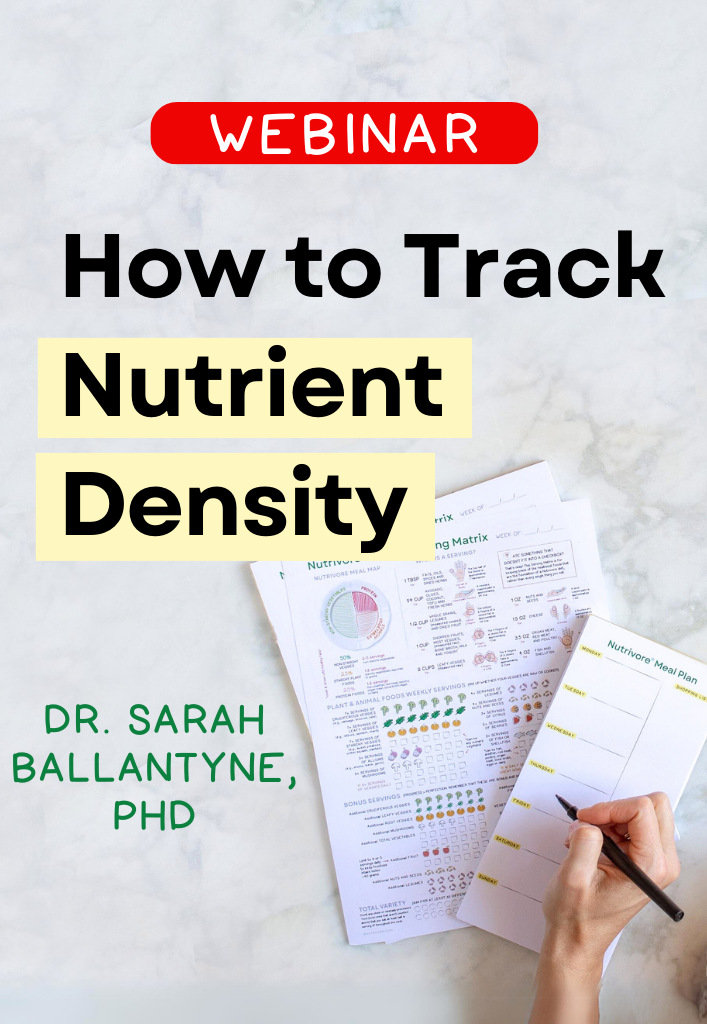
How to Track Nutrient Density
Discover how nutrient dense your diet already is and how to fill in any nutrient gaps.
In this webinar, Dr. Sarah will give you a new perspective on food choices via the Nutrivore Score, and teach you how to calculate your daily Nutrivore Score, intuitively create balanced meals with the Nutrivore Meal Map, and set achievable serving targets for foundational food families.
Buy now for instant digital access.
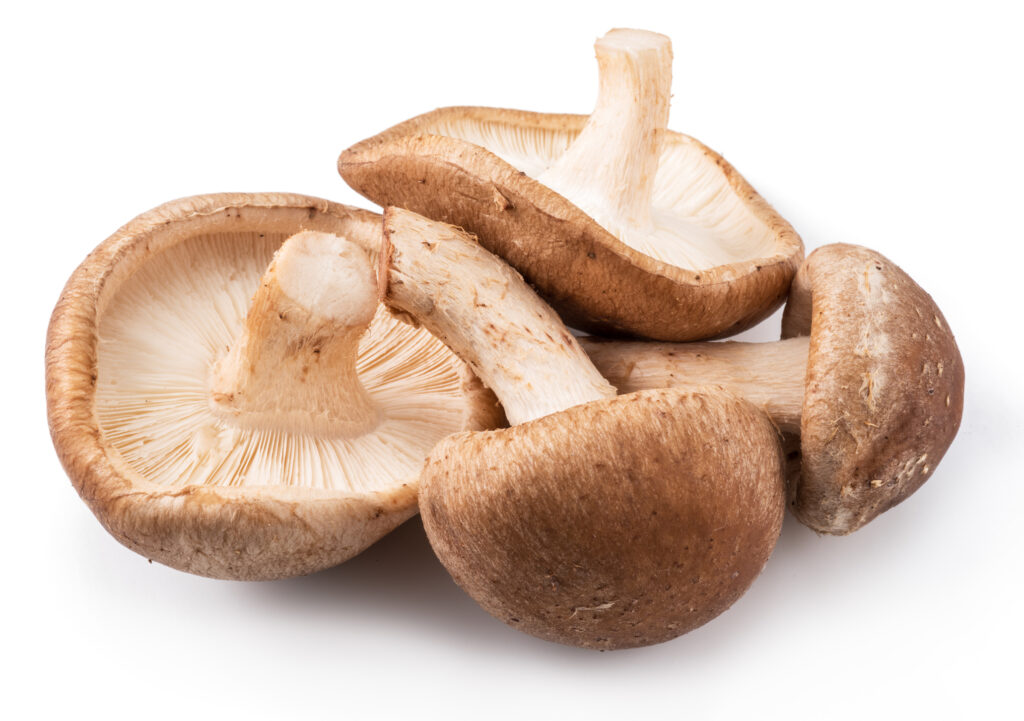
Nutrivore Score for Shiitake Mushrooms – 4343
Shiitake mushrooms have an impressive Nutrivore Score of 4343, which makes them a super nutrient-dense food! Plus, they are a low-carb and low-calorie-density food; the calorie count of shiitake mushrooms is just 29 calories per cup!
Per serving, shiitake mushrooms are a best source (>50% daily value) of ergothioneine; an excellent source (20-50% daily value) of vitamin B3 (niacin), and vitamin B5 (pantothenic acid); and a good source (10-20% daily value) of copper, vitamin B2 (riboflavin), vitamin B6 (pyridoxine), and vitamin B7 (biotin).
Ditch Diets. Embrace Nutrients. Start with this FREE Guide.
Sign up for the free Nutrivore Newsletter, your weekly, science-backed guide to improving health through nutrient-rich foods — without dieting harder —and get the Beginner’s Guide to Nutrivore delivered straight to your inbox!

Shiitake Mushroom Nutrition Facts
One serving of shiitake mushrooms is standardized to 1 cup of mushrooms, sliced or about 86 grams (3 ounces). When you cook shiitake mushrooms, they reduce in volume: 1 cup raw shiitake mushrooms is roughly equivalent to a little less than 2/3 cup cooked shiitake mushrooms.
Shiitake Mushroom Nutrition Facts Per Serving
| Shiitake mushroom, raw | Nutrivore Score: 4343 | Nutrient Density: Super! |
|---|---|---|
| Serving Size: 1 cup (86 grams) | Protein: 1.9 grams | Net Carbohydrate: 3.7 grams |
| Calories: 29 | Total Fat: 0.4 grams | Dietary Fiber: 2.2 grams |
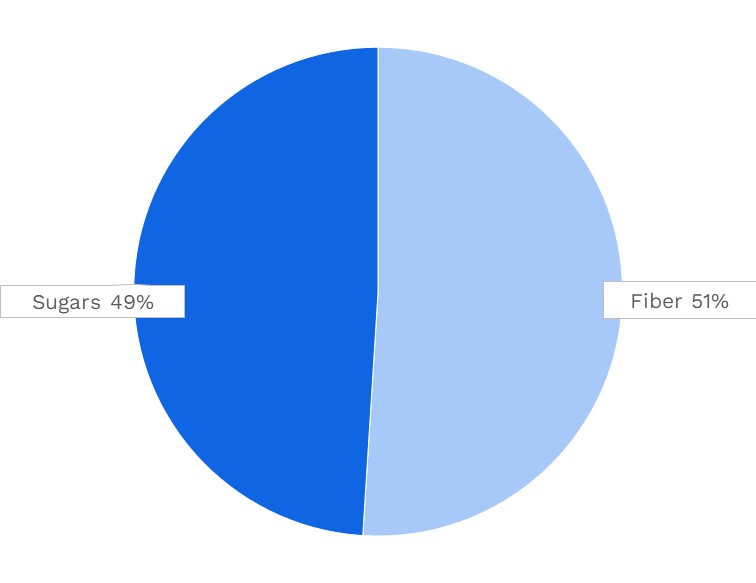
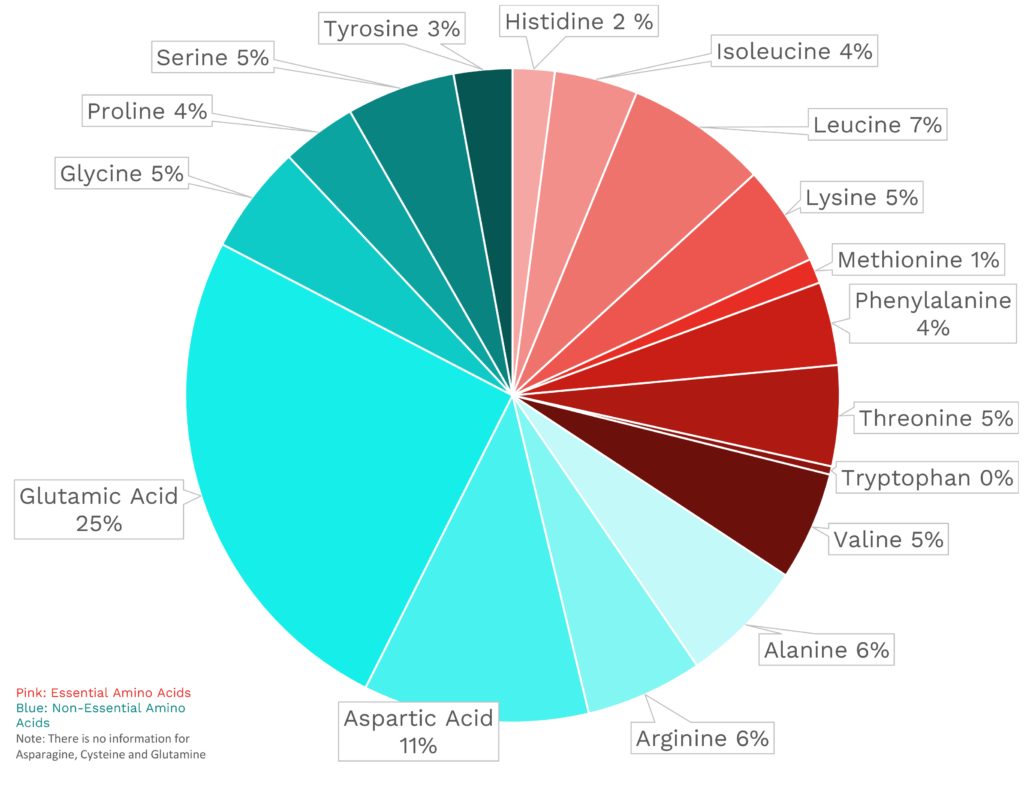
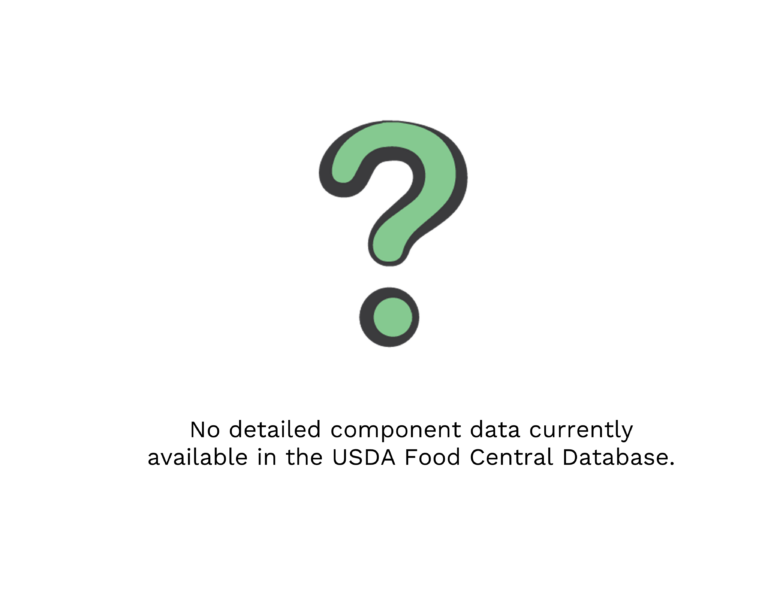
| VITAMINS | ||
|---|---|---|
| Vitamin A | 0.0 μg RAE | 0% DV |
| Vitamin B1 (Thiamin) | 12.9 μg | 1% DV |
| Vitamin B2 (Riboflavin) | 186.6 μg | 14% DV |
| Vitamin B3 (Niacin) | 3.3 mg | 21% DV |
| Vitamin B5 (Pantothenic Acid) | 1.3 mg | 26% DV |
| Vitamin B6 (Pyridoxine) | 252.0 μg | 15% DV |
| Vitamin B7 (Biotin) | 5.8 μg | 19% DV |
| Vitamin B9 (Folate) | 11.2 μg | 3% DV |
| Vitamin B12 (Cobalamin) | 0.0 μg | 0% DV |
| Vitamin C | 0.3 mg | 0% DV |
| Vitamin D (D2 + D3) | 0.3 μg | 2% DV |
| Vitamin E | 0.0 mg | 0% DV |
| Vitamin K | ~ | ~ |
| Choline | 20.0 mg | 4% DV |
| Myo-Inositol | 7.7 mg | ~ |
| CoQ10 | 0.0 mg | ~ |
| FUNCTIONAL FATS | ||
|---|---|---|
| MUFA | 0.0 g | 0% DV |
| ALA | 1.3 mg | 0% DV |
| EPA + DHA | ~ | ~ |
| CLA | ~ | ~ |
| Linoleic Acid | 0.0 g | 0% DV |
| MCT’s | ~ | ~ |
| MINERALS | ||
|---|---|---|
| Calcium | 1.7 mg | 0% DV |
| Copper | 122.1 μg | 14% DV |
| Iodine | ~ | ~ |
| Iron | 0.4 mg | 2% DV |
| Magnesium | 17.2 mg | 4% DV |
| Manganese | 197.8 μg | 9% DV |
| Phosphorus | 96.3 mg | 8% DV |
| Potassium | 261.4 mg | 6% DV |
| Selenium | 4.9 μg | 9% DV |
| Sodium | 7.7 mg | 0% DV |
| Zinc | 0.9 mg | 8% DV |
| PHYTONUTRIENTS | ||
|---|---|---|
| Carotenoids | 0.0 μg | ~ |
| Polyphenols | 44.6 mg | ~ |
| Phytosterols | 49.0 mg | ~ |
| Glucosinolates | ~ | ~ |
| Thiosulfinates | ~ | ~ |
| Betalains | ~ | ~ |
| AMINO ACIDS & PEPTIDES | ||
|---|---|---|
| Taurine | ~ | ~ |
| Ergothioneine | 24.4 mg | ~ |
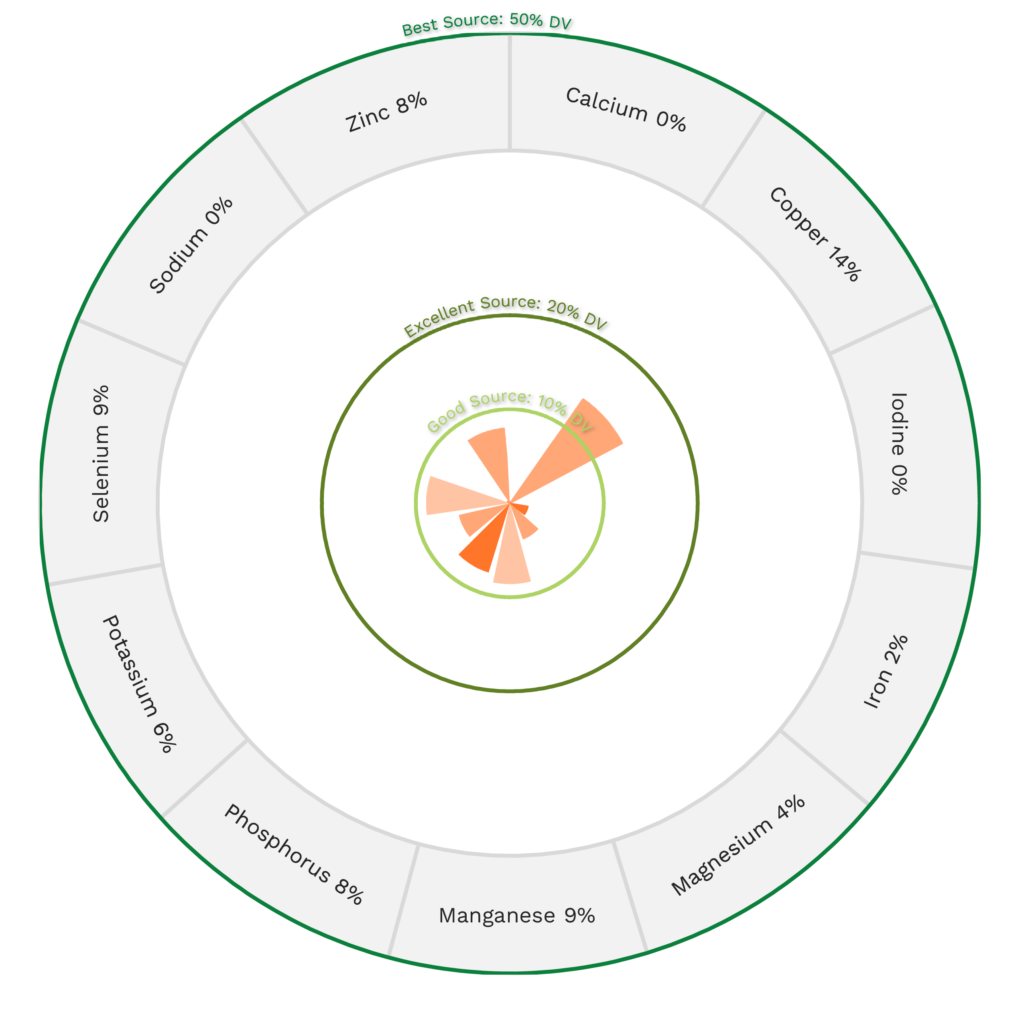
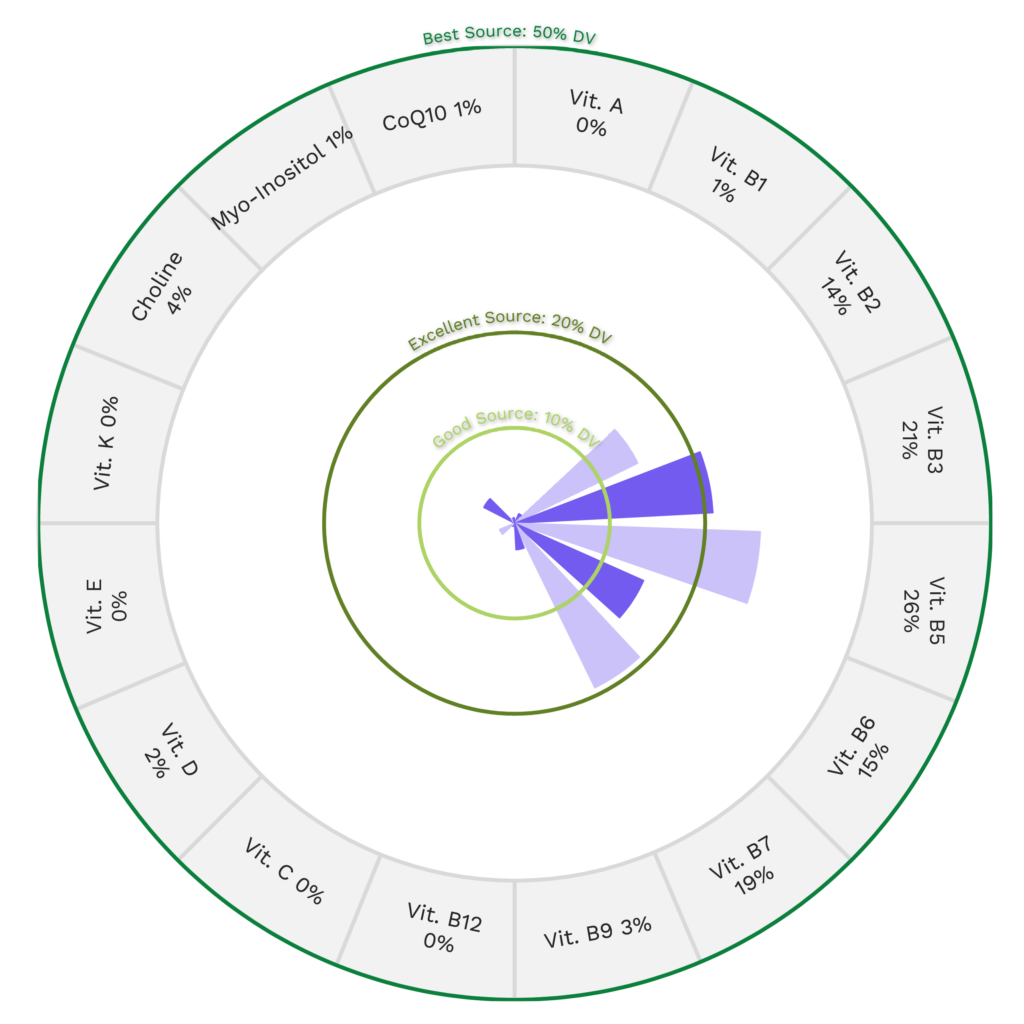
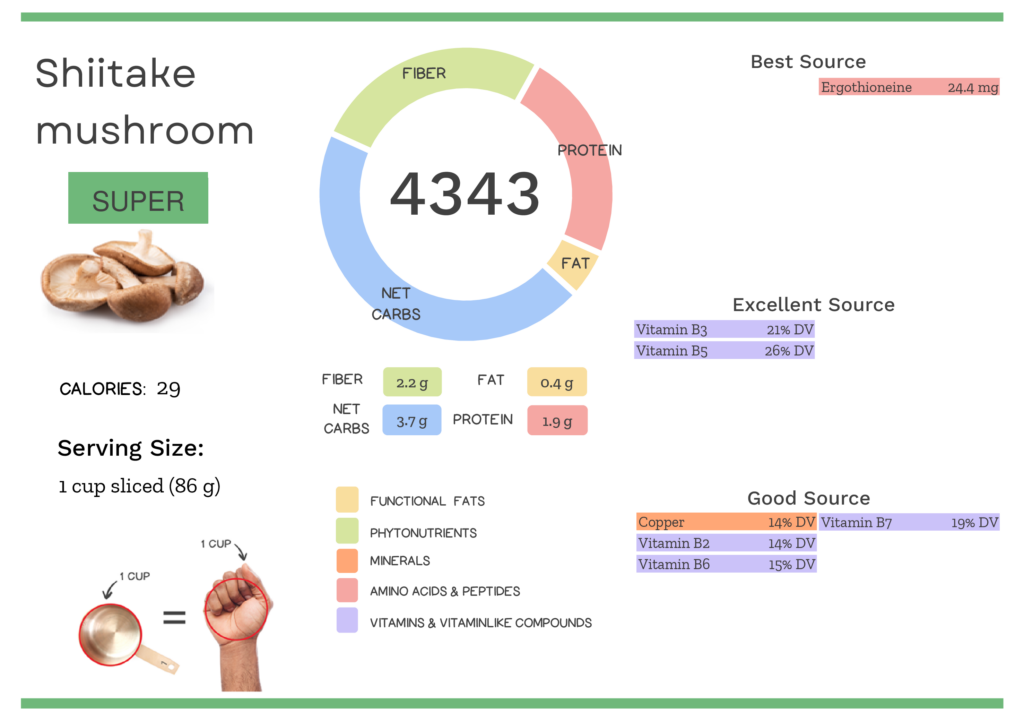
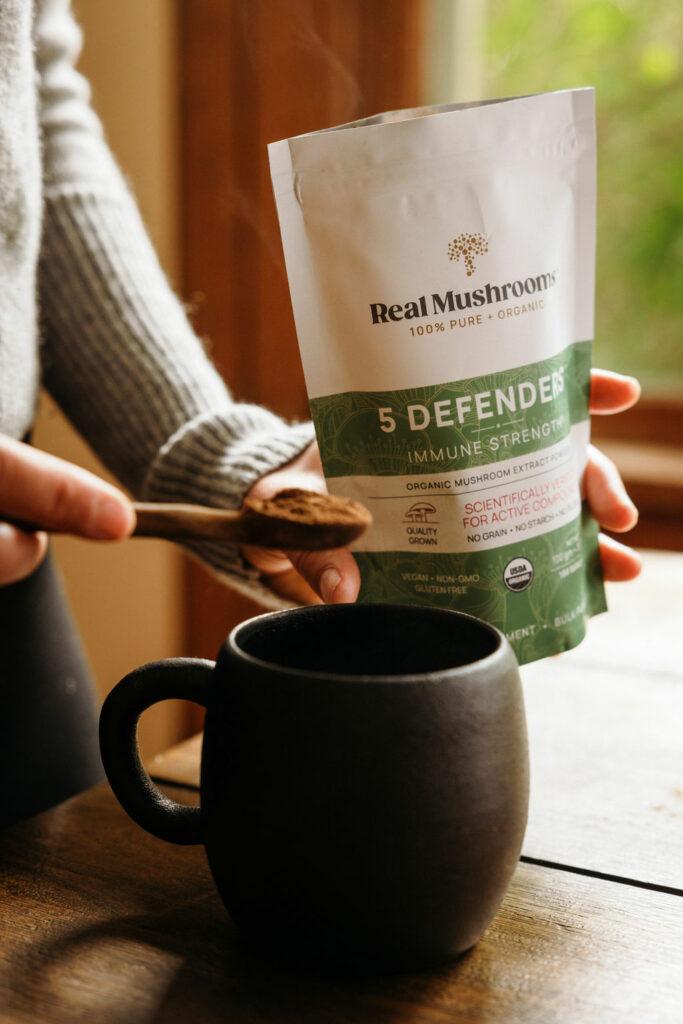
The Best Mushroom Extracts
- Wild-harvested, organic and sustainably-sourced mushroom extracts
- No starch, grain, fillers or mycelium
- Gluten-free, non-GMO and Vegan
- Verified for quality at accredited 3rd party labs
- Save 25% off, no code required
Shiitake Mushroom Nutrition Varies With Cooking and Processing
The Nutrivore Score for shiitake mushrooms varies depending on method of preparation and processing. For instance, dried mushrooms are versatile and a convenient way to add concentrated flavor to dishes.
| NUTRIVORE SCORE | |
|---|---|
| Shiitake mushroom, cooked, with salt | 4379 |
| Shiitake mushroom, cooked, without salt | 4365 |
| Shiitake mushroom, dried | 4400 |
| Shiitake mushroom, raw | 4343 |
| Shiitake mushroom, stir-fried | 4325 |
Mushroom Nutrition Varies with Variety
There are many varieties of mushrooms, all with different nutrient profiles, which means their Nutrivore Scores vary too! Overall, mushrooms are powerhouses of nutrition, containing an extremely impressive amount of essential vitamins and minerals per calorie!
| NUTRIVORE SCORE | |
|---|---|
| Chanterelle mushrooms, raw | 1555 |
| Cremini mushrooms, raw | 2279 |
| Enoki mushrooms, raw | 4434 |
| Maitake mushrooms, raw | 3551 |
| Morel mushrooms, raw | 22711 |
| Oyster mushrooms, raw | 2550 |
| Portabella mushrooms, raw | 1483 |
| Shiitake mushrooms, raw | 4343 |
| White button mushrooms, raw | 1872 |
If you give a shiitake about mushrooms, maybe your friends will too!
Health Benefits of Shiitake Mushroom Nutrients
Let’s take a closer look at all of the best and excellent source of nutrients found in a 1-cup serving of shiitake mushrooms and see how they benefit our health.
Shiitake Mushrooms Provide 24.4 mg of Ergothioneine
Shiitake mushrooms are a phenomenal source of ergothioneine, providing a whopping 24.4 mg of ergothioneine per 1-cup serving!
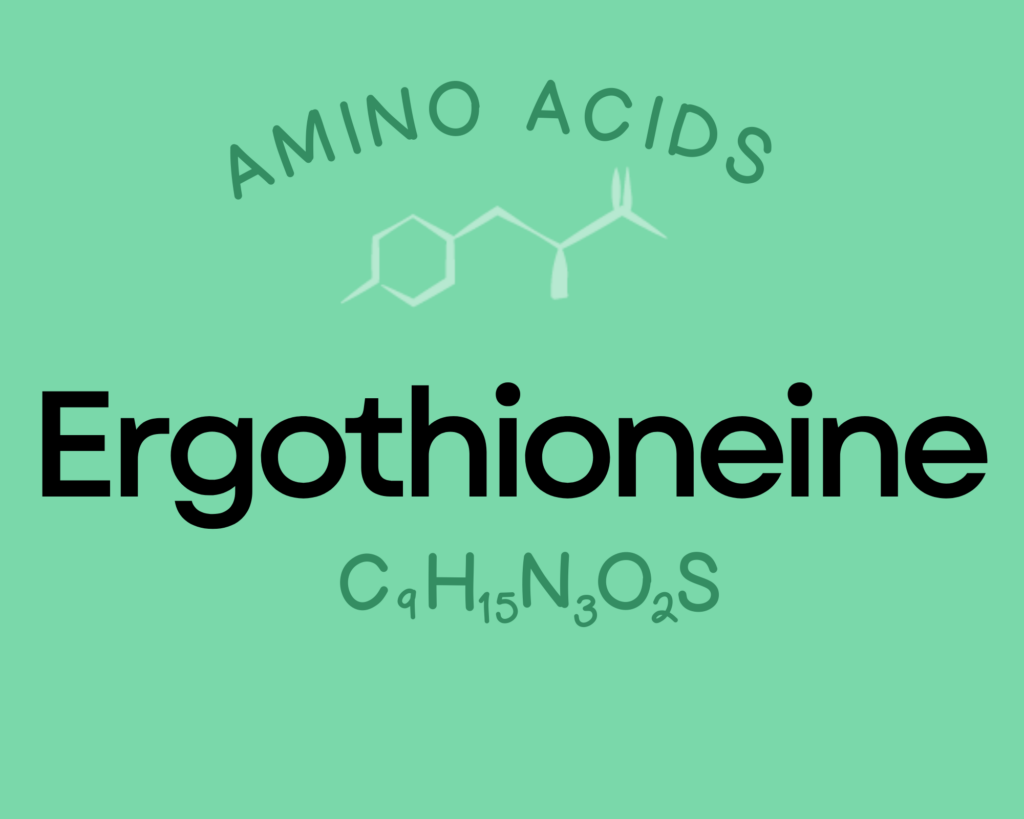
Ergothioneine is a non-proteinogenic amino acid with powerful antioxidant and anti-inflammatory properties shown to mitigate diseases associated with aging, including cardiovascular disease, cancer, liver disease, cataracts, and Alzheimer’s disease. It has been shown to enhance memory, reduce risk of depression, reduce neuroinflammation, and improve sleep. There’s evidence for a role in fetal development, female fertility, and it reduces risk of preeclampsia. Ergothioneine has even been called the “longevity vitamin” since studies show that it reduces all-cause mortality and is associated with longer lifespan. Learn more here.
Shiitake Mushrooms Provide 26% DV Vitamin B5 (Pantothenic Acid)
Shiitake mushrooms are an excellent source of vitamin B5 (panthothenic acid), providing 26% of the daily value per 1-cup serving.

Pantothenic acid (or vitamin B5) is a water-soluble vitamin that serves as a cofactor for coenzyme A—which itself is critical for metabolizing many drugs and toxins, as well as forming derivatives (acetyl-CoA and succinyl-CoA) that participate in the synthesis of cholesterol, fatty acids, melatonin, the neurotransmitter acetylcholine, steroid hormones, heme, and vitamins A and D. Coenzyme A is also needed in the Krebs cycle, giving pantothenic acid a role in energy metabolism. Research suggests that a pantothenic acid derivative (pantethine) can help improve blood lipid profiles and reduce fatty streak formation and lipid deposition in the arteries, giving it a cardio-protective role. Additional research shows that panthothenic acid can accelerate wound healing, boost cellular production of the important antioxidant glutathione, and possibly help improve symptoms of rheumatoid arthritis. Learn more about vitamin B5 here.
Shiitake Mushrooms Provide 21% DV Vitamin B3 (Niacin)
Shiitake mushrooms are also an excellent source of vitamin B3 (niacin), providing 21% of the daily value per 1-cup serving.
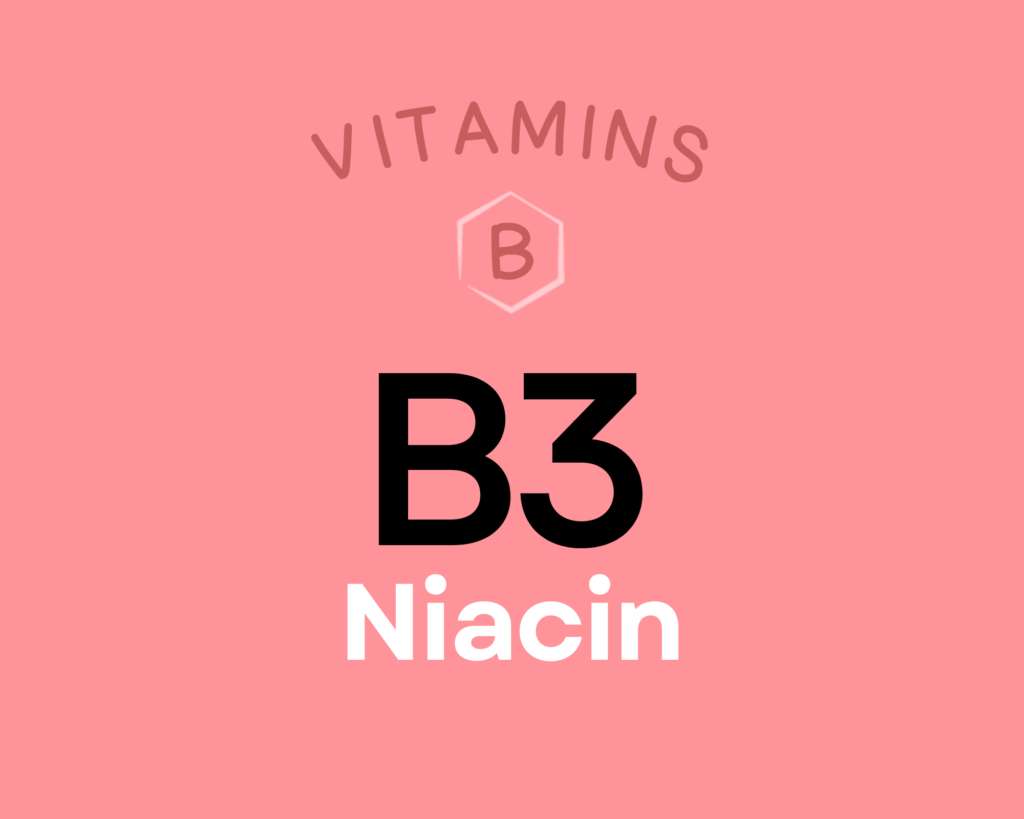
Niacin is a water-soluble B complex vitamin (vitamin B3) that’s needed to produce two very important coenzymes: nicotinamide adenine dinucleotide (NAD) and nicotinamide adenine dinucleotide phosphate (NADP). NAD and NADP are needed for over 400 enzymes involved in DNA repair, fatty acid synthesis, antioxidant systems, detoxification, and hormone synthesis, as well as the breakdown of fat, carbohydrate, protein, and alcohol. Niacin has therapeutic potential for cardiovascular disease and hyperlipidemia, and may also be protective against cancer and type 1 diabetes. Some research suggests it could benefit health outcomes for patients with HIV or schizophrenia as well. Learn more about niacin here.
Learn What Foods Are the Best Sources of Every Nutrient
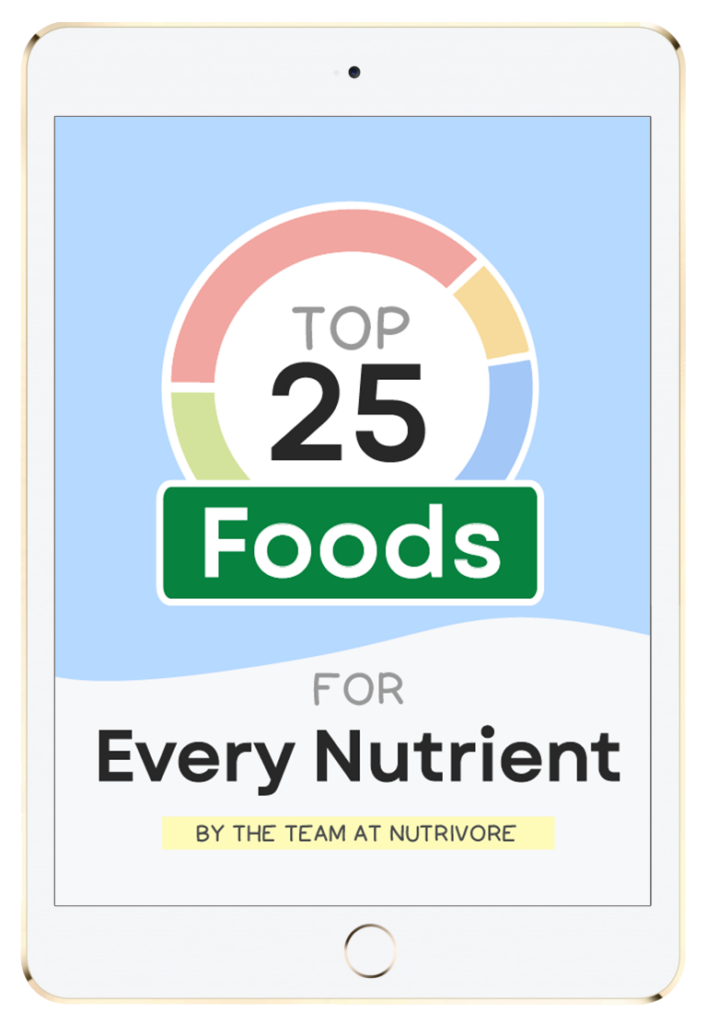
The Top 25 Foods for Every Nutrient
The Top 25 Foods for Every Nutrient e-book is a well-organized, easy-to-use, grocery store-friendly guide to help you choose foods that fit your needs of 43 important nutrients while creating a balanced nutrient-dense diet.
Get two “Top 25” food lists for each nutrient, plus you’ll find RDA charts for everyone, informative visuals, fun facts, serving sizes and the 58 foods that are Nutrient Super Stars!
Buy now for instant digital access.
How Much Shiitake Mushrooms Should we Eat Per Day?
Whether you like them grilled, roasted, sauteed, stuffed, or in salads, soups, stews, or stir-fries, mushrooms are a phenomenal nutrient-dense addition to our plates.
Every serving of fresh, whole vegetables or fruit we eat daily reduces the risk of all-cause mortality by 5% to 8%, with the greatest risk reduction seen when we consume five or more servings per day. In fact, consuming 800 grams of vegetables and fruits daily reduces all-cause mortality by 31% compared to eating less than 40 grams daily. A 2017 meta-analysis showed that 2.24 million deaths from cardiovascular disease, 660,000 deaths from cancer, and 7.8 million deaths from all causes could be avoided globally each year if everyone consumed 800 grams of veggies and fruits every day.
Eating vegetables and fruit in abundance lowers risk of cancer, cardiovascular disease, type 2 diabetes, obesity, chronic kidney disease, osteoporosis and bone fragility fractures (including hip fracture), cognitive impairment and dementia (including Alzheimer’s disease), neurodegenerative diseases, asthma, allergies, chronic obstructive pulmonary disease, age-related macular degeneration, cataracts, glaucoma, depression, ulcerative colitis and Crohn’s disease, rheumatoid arthritis, inflammatory polyarthritis, non-alcoholic fatty liver disease, acne, seborrheic dermatitis, and lowers markers of inflammation. Learn more in Importance of Vegetables and Fruit.
Covering half of your plate with a variety of vegetables (and three quarters of your plate if your starchy food is a root vegetable or winter squash) at each meal is a simple way to easily achieve the goal of 5 or more servings of vegetables daily.
Studies show that edible mushrooms have numerous health benefits which can include: antioxidant, cholesterol-lowering, antihypertensive, anti-inflammatory, immunomodulatory (meaning they affect the immune system), liver-protective, antidiabetic, antiobesity, anticancer, antiviral, and antimicrobial effects, as well as being great for gut health. Wow!
Amazingly, a 2019 study showed that eating 100-grams of of mushrooms daily reduces all-cause mortality risk by a whopping 26%, while a 2021 study showed that eating any amount of mushrooms reduces all-cause mortality risk by 16% compared to eating no mushrooms at all! All this is to say, eating three or more servings of mushrooms per week is a great target!
But remember, it’s always best to mix up the veggies you eat day to day (aiming for a wide variety of different vegetables and fruits throughout the week), and shiitake mushrooms definitely have a place at the table.
Easily track your servings of Nutrivore Foundational Foods!
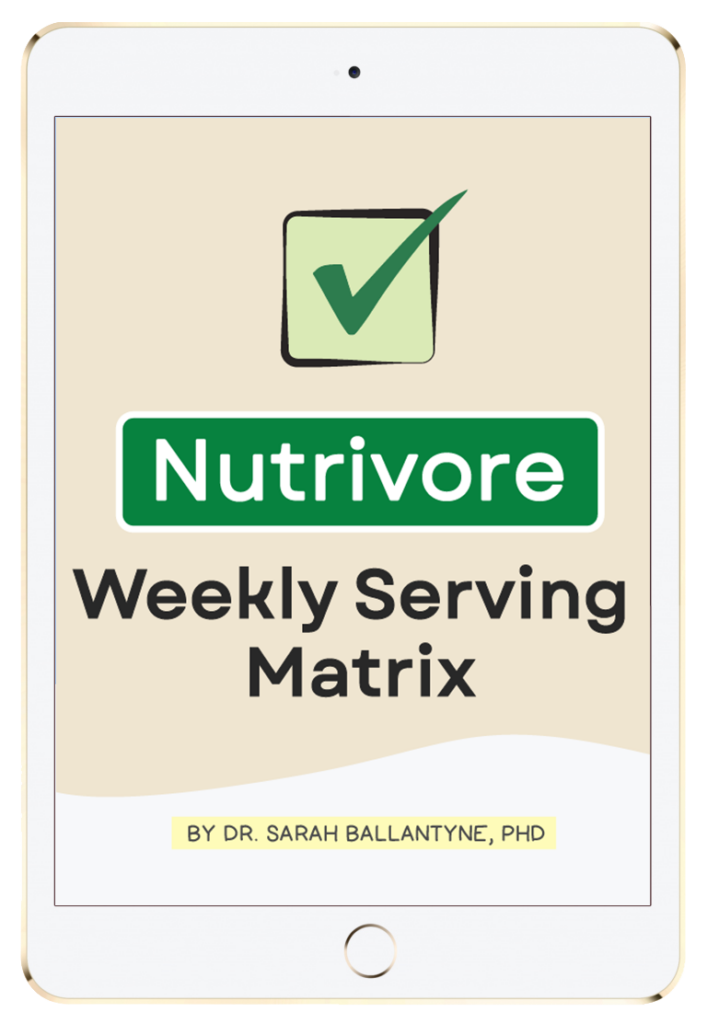
The Nutrivore Weekly Serving Matrix
The Nutrivore Weekly Serving Matrix digital resource is an easy-to-use and flexible weekly checklist designed to help you maximize nutrient-density and meet serving suggestions of Nutrivore foundational foods, all without having to weigh or measure your foods!
Includes a 22-page instructional guide and downloadable interactive guides.
Buy now for instant digital access.
Citations
Expand to see all scientific references for this article.
Ba DM, Gao X, Al-Shaar L, Muscat J, Chinchilli VM, Ssentongo P, Zhang X, Liu G, Beelman RB, Richie JP Jr. Prospective study of dietary mushroom intake and risk of mortality: results from continuous National Health and Nutrition Examination Survey (NHANES) 2003-2014 and a meta-analysis. Nutr J. 2021 Sep 21;20(1):80. doi: 10.1186/s12937-021-00738-w. PMID: 34548082; PMCID: PMC8454070. F
Clements RS Jr, Darnell B. Myo-inositol content of common foods: development of a high-myo-inositol diet. Am J Clin Nutr. 1980 Sep;33(9):1954-67. doi: 10.1093/ajcn/33.9.1954. PMID: 7416064.
Dubost NJ, Ou B, Beelman RB. Quantification of polyphenols and ergothioneine in cultivated mushrooms and correlation to total antioxidant capacity. Food Chemistry. 2007. Vol. 105(2):727-735. https://doi.org/10.1016/j.foodchem.2007.01.030. ISSN 0308-8146.
Fineli Finnish Food Composition Database: Shiitake Mushroom
Hong MH, Jin YJ, Pyo YH. Antioxidant Properties and Ubiquinone Contents in Different Parts of Several Commercial Mushrooms. Journal of The Korean Society of Food Science and Nutrition. 2012. Vol 41(9):1235-1241. ISSN : 1226-3311
Kwok CS, Gulati M, Michos ED, Potts J, Wu P, Watson L, Loke YK, Mallen C, Mamas MA. Dietary components and risk of cardiovascular disease and all-cause mortality: a review of evidence from meta-analyses. Eur J Prev Cardiol. 2019 Sep;26(13):1415-1429. doi: 10.1177/2047487319843667. Epub 2019 Apr 11. PMID: 30971126.
Nguyen H, Nagasaka R, Ohshima T. The Natural Antioxidant Ergothioneine: Resources, Chemical Characterization, and Applications. Lipid Oxidation: Challenges in Food Systems. 2013. Ch 12:381-415. ISBN 9780983079163. https://doi.org/10.1016/B978-0-9830791-6-3.50015-1.
USDA Food Central Database: Mushrooms, shiitake, dried
USDA Food Central Database: Mushrooms, shiitake, raw
Watanabe T, Kioka M, Fukushima A, Morimoto M, Sawamura H. Biotin content table of select foods and biotin intake in Japanese. Int J Anal Bio-Sci. 2014. Vol 2(4):109-125.


